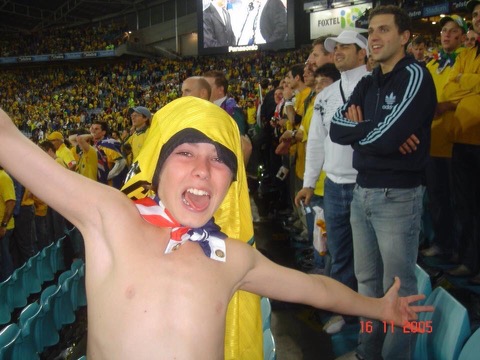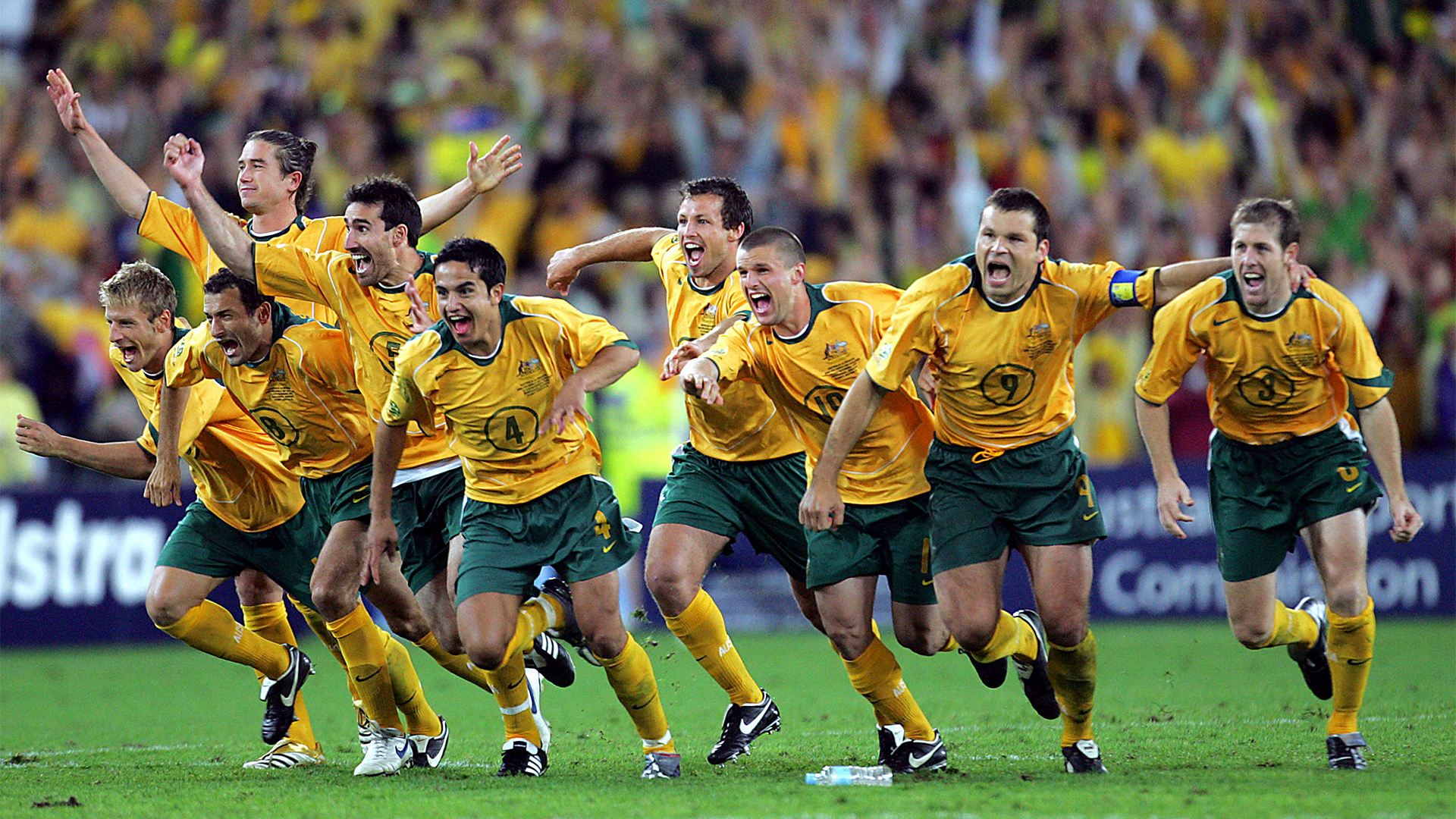On November 16, 2005, an entire nation stopped to watch the Socceroos take on Uruguay in a match that would see them qualify for the FIFA World Cup for the first time in 32 years.
Long-suffering football fans gathered at 8pm on that Wednesday to watch what would go down as one of the most iconic Australian sporting moments this century.
In the crowd? Parents taking their children to their first-ever football match. Fans who had ridden every moment of 32 years of agony, and those who knew nothing else but qualification failure. The fanatics. The casuals. Everyone in between.
As the camera panned through the crowd, there was one youngster who would go on to make his own irrepressible mark on Australian football, decades later - CommBank Socceroos star Jackson Irvine.
"It's hard to put it into words," Irvine recalled, as part of the 20-year anniversary celebrations.
"It's probably one of the defining moments of my childhood, and ultimately, my footballing life. It was everything you ever dream about being a part of as a fan, and experiencing history being made, live, in that moment. Even though I probably didn't have the context of the years of suffering before as a 12-year-old, you could feel it. You could feel it.
"It was a truly defining moment in a lot of ways - experiencing and seeing what was possible as an Australian footballer, to be a part of a moment like that."

The expectation on the playing group was huge. Dubbed the 'Golden Generation,' the squad featured iconic Australian legends like Harry Kewell, Mark Viduka and Mark Schwarzer. Among the general public, the idea that this group at the peak of their powers could not qualify for the global finals was difficult to fathom.
"The quality and the level that they were all playing at that moment is probably the highest we've had, in terms of the level that all the players were competing at that time," Irvine said.
"The expectation was probably higher because of that as well."
Australia went into the second leg of the play-off for the 2006 FIFA World Cup against Uruguay knowing that they had to overturn a one-goal deficit to qualify. With a home ground advantage, confidence was high - but nerves after so many failures, including by a very similar playing group four years earlier, are impossible to quantify.
Mark Bresciano scored in the first half to bring the tie to 1-1. Despite chances falling for either side, there were no further goals after 120 minutes, setting the scene for one of the most famous penalty shootouts in Australian football history.
After Mark Schwarzer denied Uruguay two of their four penalties, John Aloisi stepped up as the fifth penalty taker to write his name in Australian folklore.

"[The celebration] never gets boring," Irvine smiled, watching the footage.
"A little forgotten part of those celebrations, by the way, is when Schwarzer also takes his top off and is running beside Johnny! That's the iconic one, but it's not talked about enough, I don't think."
Irvine laughed as he recounted the way that the fans in the stadium responded to the celebrations.
"Tops off from there - that was the theme of the night!" he recalled.
"I remember, actually, on the plane from Melbourne the day before. I was with my Mum and my best mate, we went to the game together. There was a group of guys sitting in front of us on the plane. They were on the beers and getting ready - the whole plane was basically going off for the game.
"After the game, we celebrated in the stands, and then we obviously went outside the stadium. Everyone was celebrating, running around. The group of guys that were sitting in front of us on the plane saw my mate there with my mum, and they came and they lifted us up on their shoulders and stuff. There are just so many memories from that night.
"I was so lucky to be able to be a part of it. I'm so grateful to my Mum in letting me experience that, because it's priceless. It's priceless what that does for you as a young person, as a young player, aspiring to be there. As I said, I saw with my own eyes what was possible."
That 12-year-old celebrating outside the stadium that night has now gone on to represent his country at two World Cups, and is hoping to do so at a third next year.
Irvine sums up what makes the global finals so special - and how the Golden Generation inspired the next 20 years of Socceroos to be Forever Golden.
"When you reflect on those 32 years, and the players and things that happened in that time, and the players that never had the chance to get to this level. Then the fact that I've been able to do it twice, and I hope to be able to do it again - it's absolutely incredible to have been a part of a group of players that have been able to not just compete, but thrive on the biggest stage," he said.
"Being a part of this team in general is special in its own way. But I'd be lying if I said when you get to that point [at a World Cup], nothing changes, and the emotions and your own story in relation to everyone else's. When you get to that level, that point, it is something else. It is something different. Everything, the intensity, the emotions, everything gets dialled up to 11 - it changes something. Really, it does.
"For the guys that haven't been there, they'll be itching to have a chance to experience that. The ones who have been will give an arm and a leg to have the chance to have one more taste of it at any point, because it means everything.
"Every player appreciates that [journey], and that appreciation is why we are so strong as a unit on the pitch, because we all have that same recognition and understanding of each other. You go out there to bloody die together on the pitch every time, because that's what it takes."
